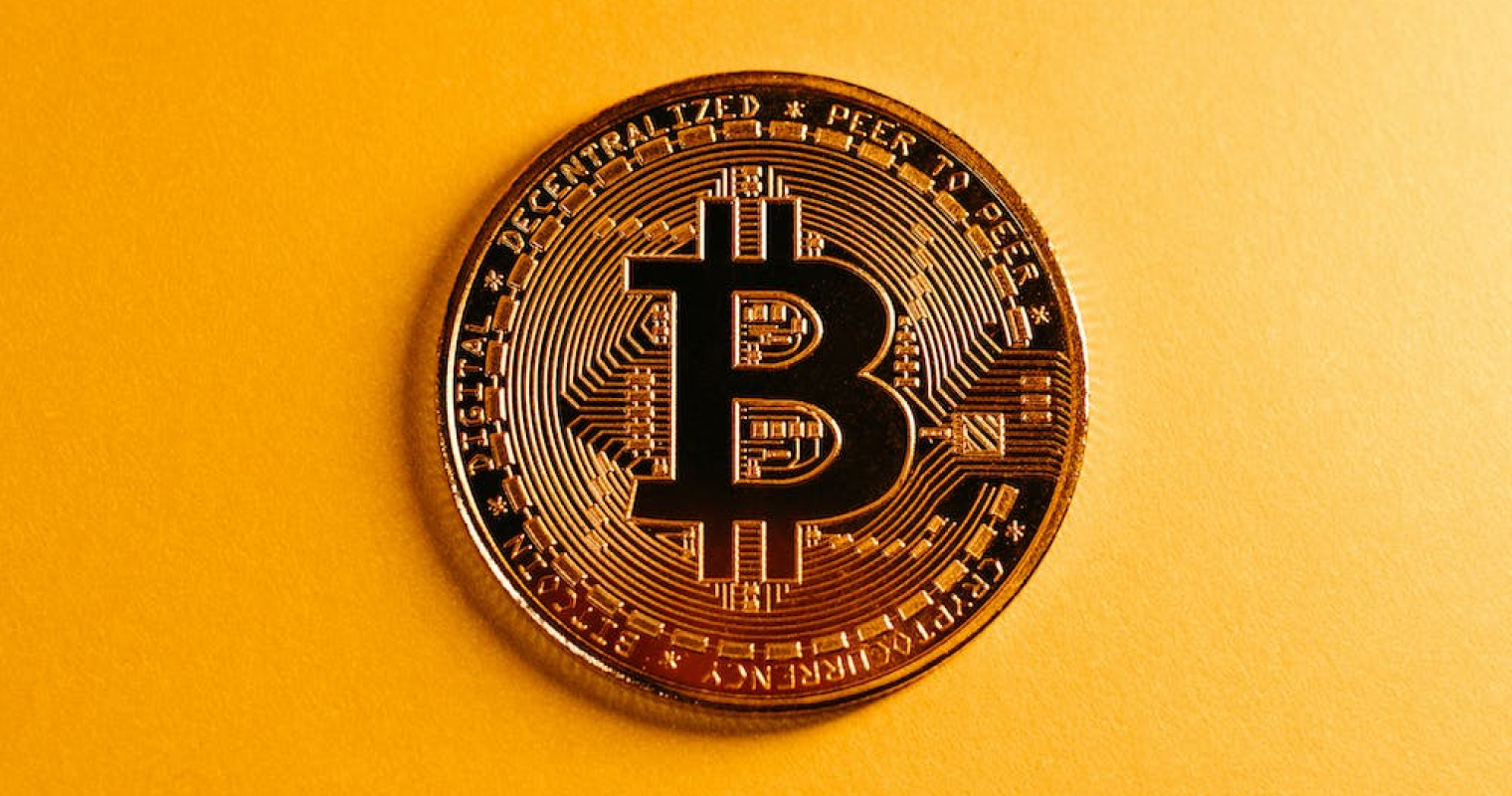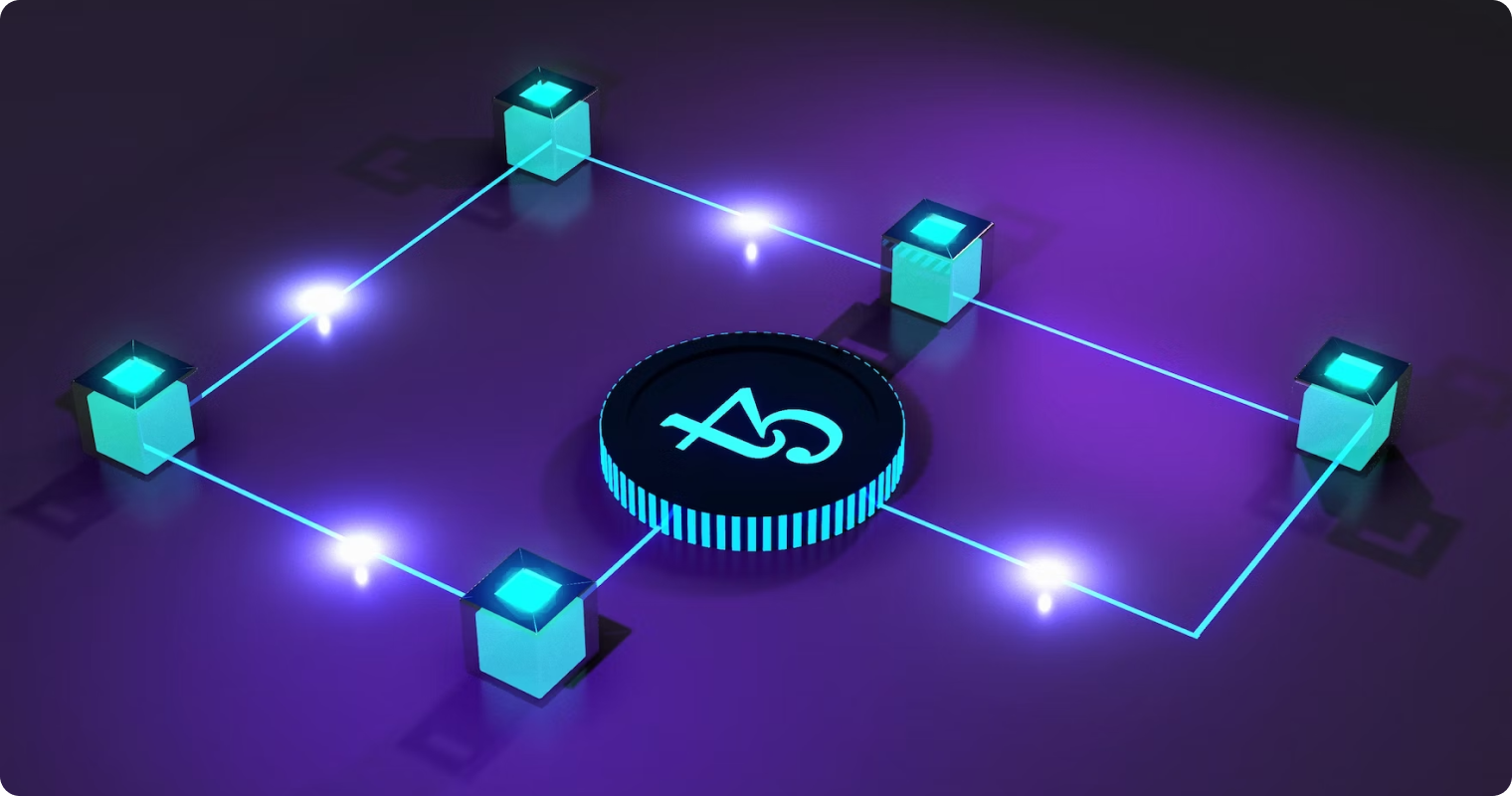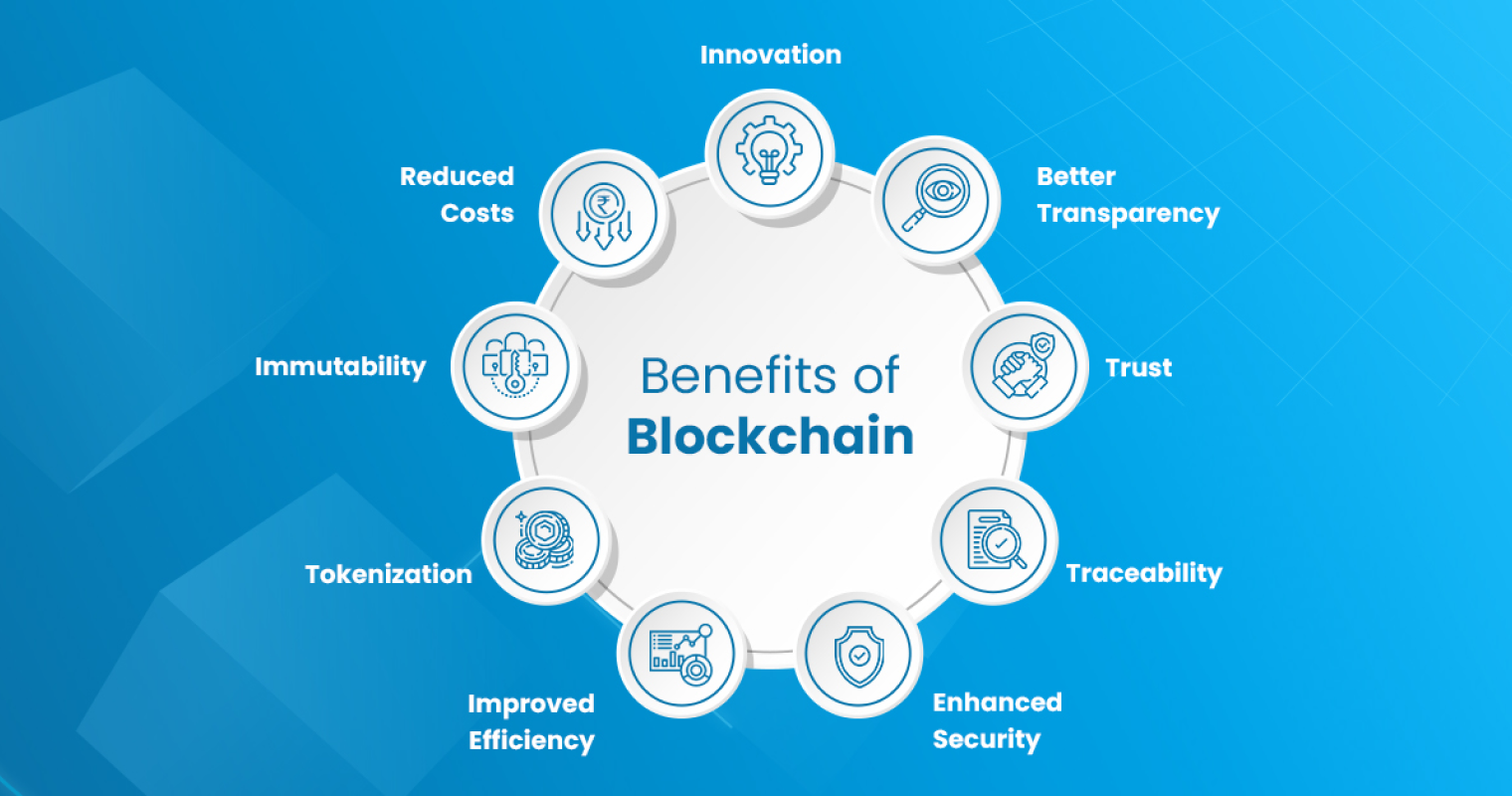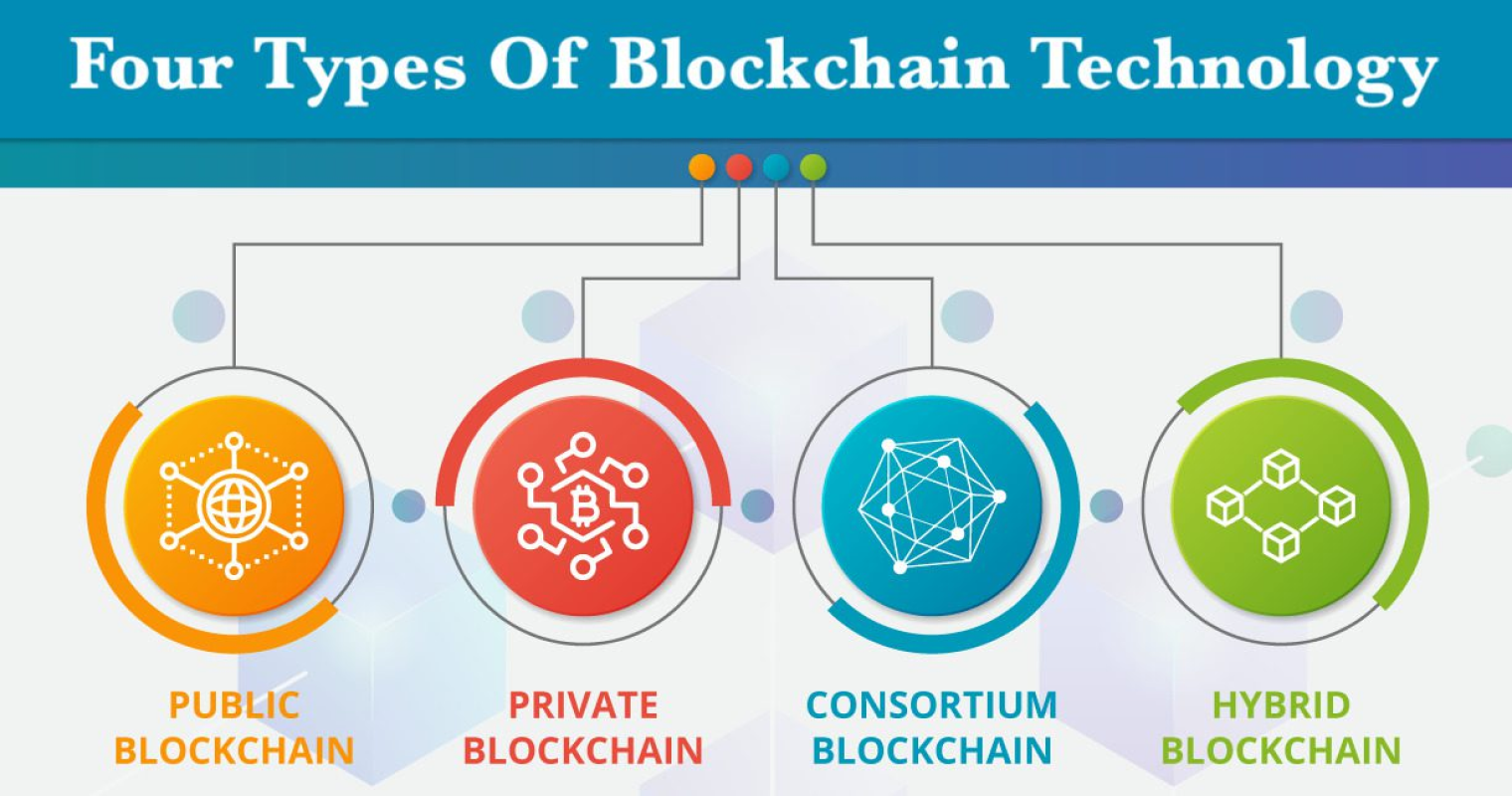What exactly is Blockchain? A guide on incorporating Decentralization into your App.

Chirag Jani
10 Mins read
June 22, 2023

What is blockchain?
Blockchain is a type of decentralised database that stores data in blocks chronologically. Each block is chained together using unique fingerprint-like identifiers called hashes. The database is hosted on a decentralised computer network that constantly runs checks to ensure the data agrees across all copies of the database.
There’s a lot in that definition to break down, so let’s take a look at each part with an example. For instance, say you were writing a paper. Every few minutes, you save that paper to avoid losing any data. A blockchain would allow you to see each version of that paper you created every time you saved it.

What are the benefits of using blockchain?
True chronological record keeping
-
The primary benefit of using blockchain is, of course, also its primary function. Blockchain is an excellent way to store records chronologically. And since it’s so versatile, you can use it for virtually any kind of record-keeping.
Software people who have worked with Git can likely see the similarities between Git and blockchain. Blockchain is so powerful because it applies the underlying principle of a version control system to nearly any kind of information plagiarism protection, financial transactions, law-keeping, medical record storage, financial investments and so on.
Blockchain is incredibly secure
-
Blockchain is also incredibly secure. It’s hard to overstate this. The fingerprint-like hashes that link each new block to the previous block in the chain create nearly unbreakable security. They can’t be separated or shifted around, which makes fraud and tampering almost impossible.
Consensus reinforces blockchain’s security. Since a network of computers shares a blockchain and updates every record when adding each new block, it’s impossible to edit, add to, or otherwise alter the blockchain without others seeing those changes.
Likewise, each change has to be “verified” by every other user of that blockchain. This means that each person’s copy of the blockchain must check and validate that blocks added by different users are legitimate. So nobody can falsely add new blocks.
It’s a decentralised way to store records
-
Lastly, blockchain was initially conceived to be decentralised. Like cryptocurrency (or even the internet), blockchain technology often exists outside of centralised moderation. When a blockchain is decentralised, it can’t be controlled or tampered with by governing bodies or corporate interests.
Not only does this aid in building trust in blockchain record-keeping, but it also makes blockchain more accessible to everyone. Everyone using a blockchain also has their own copy of that blockchain, democratising its use and keeping everything secure.

How many blockchains are there?
1. Public
-
The first and most common type of blockchain today is the public blockchain. These are blockchains that anyone can access and use. Most cryptocurrencies use public blockchains.
Public blockchains are fully decentralised and immutable, so anyone in the world can access them without disrupting them. These blockchains are anonymous, too, so everyone can see the activity on the blockchain without knowing whose activity they’re viewing. This transparency makes blockchain perfect for cryptocurrency — the transactions are publicly visible without giving away personal information.
2. Private
-
A private blockchain is one in which a single organisation or individual has total control over the blockchain. You can think of this as a “proprietary” blockchain. A school, business, government agency, or even a person could control a private blockchain.
Since a limited group of people uses this blockchain, it can run faster than a public blockchain. It also has the benefit of being more private and scalable.
3. Hybrid
-
Hybrid blockchains are, as the name implies, combinations of public and private blockchains. They pull elements of each together in unique ways, keeping things confidential and proprietary without closing out the rest of the world.
For example, the real estate industry could use a hybrid blockchain to keep track of house sales. Only real estate businesses would have access to the blockchain, but it wouldn’t be limited to any specific real estate business, either.
4. Consortium/Federated
-
Similar to a hybrid blockchain, federated or consortium blockchains combine elements of private and public blockchains. Federated blockchains keep certain features just for enterprise and share other elements with the public.

Notable and potential uses for blockchain technology
Bitcoin and cryptocurrency transactions
-
Kicking this list off is the use case that we’re all familiar with, Bitcoin and cryptocurrency transactions.
Public blockchains are fully decentralised and immutable, so anyone in the world can access them without disrupting them. These blockchains are anonymous, too, so everyone can see the activity on the blockchain without knowing whose activity they’re viewing. This transparency makes blockchain perfect for cryptocurrency — the transactions are publicly visible without giving away personal information.
Bitcoin relies on public blockchains, allowing everyone making Bitcoin transactions to ensure that the transaction is valid. There’s no need for government oversight, corporate or banking validation, etc. As long as two individuals have a medium for making transactions, they can and know that it’s valid.
Verifying elections
-
An interesting application for blockchain is election verification. Though most elections still rely on traditional voting methods, blockchain voting is appearing more frequently, including in the 2020 presidential election in Utah County.
In this use case, governments use a blockchain to keep track of each person’s vote. Blockchain voting has the potential to prevent issues like double-voting, lost ballots, voting by illegitimate individuals (e.g., deceased individuals), and so on.
While voting systems could use private or hybrid blockchain systems, a federated blockchain would likely be the ideal solution. It would allow for the blockchain to be overseen and controlled by a governing body while also allowing individuals to interact with it when casting their votes.
Managing medical records
-
An excellent possibility for private blockchain is in the healthcare sector. Specifically, hospitals could use a private or hybrid blockchain to keep track of every patient’s medical records.
This would allow doctors to easily and quickly share medical data with hospitals all across your healthcare network. It would also provide doctors with an accurate and reliable medical history, allowing for more precise and prompt treatment.
Filing taxes securely
-
On a federal level, individuals could use blockchain to file taxes. Along with being a substantial upgrade/overhaul to the tax system in many countries, this would also boost security and remove the widespread fraud that often affects large-scale tax systems.
The transparency of blockchain would make it impossible to hide fraud from government agencies. And the security of the system would be a boon to citizens.
Tracking cattle (The most interesting one)
-
One unique use for blockchain technology is as a means for tracking cattle. There has been an issue of tick-infected cattle undermining Zimbabwe’s beef exports in Zimbabwe, jeopardising a valuable market for the country. External buyers want assurance that beef isn’t coming from infected cows. When they don’t get that guarantee, they’re buying beef elsewhere.
To solve this, Zimbabwe has partnered with E-Livestock Global to track the medical history of cows using blockchain technology. Since this medical history is immutable, farmers can prove that a tick hasn’t infected a cow before a sale, reassuring buyers that the beef they’re purchasing is safe.
Safe marriage certifications
-
Marriage Unblocked is another unique use case for blockchain. It uses public blockchain technology to allow couples to recite vows and marry one another, regardless of their orientation, gender, race, or other discriminated factors.
Their marriage is validated and stored on the blockchain, where it will remain unchanged and unremoved, forever on the internet. For LGBTQ+ and inter-racial couples in discriminatory regions, this provides a safe alternative to state-owned marriage ceremonies.
Reduce counterfeit wine
-
Like the farmers in Zimbabwe, wineries are using blockchain tech to verify the authenticity of batches of wine. This blockchain helps reduce counterfeit wine, which is a growing problem in the industry.

How can you use blockchain in apps?
Of course, blockchain use isn’t limited to any of these sectors or cases. The only thing limiting how you use blockchain is your imagination, including in your apps.
For app developers and businesses that want to invest in building an app, blockchain can increase your apps’ security, transparency, and stability in an unprecedented fashion. It can also help you craft experiences and solutions like no other.
